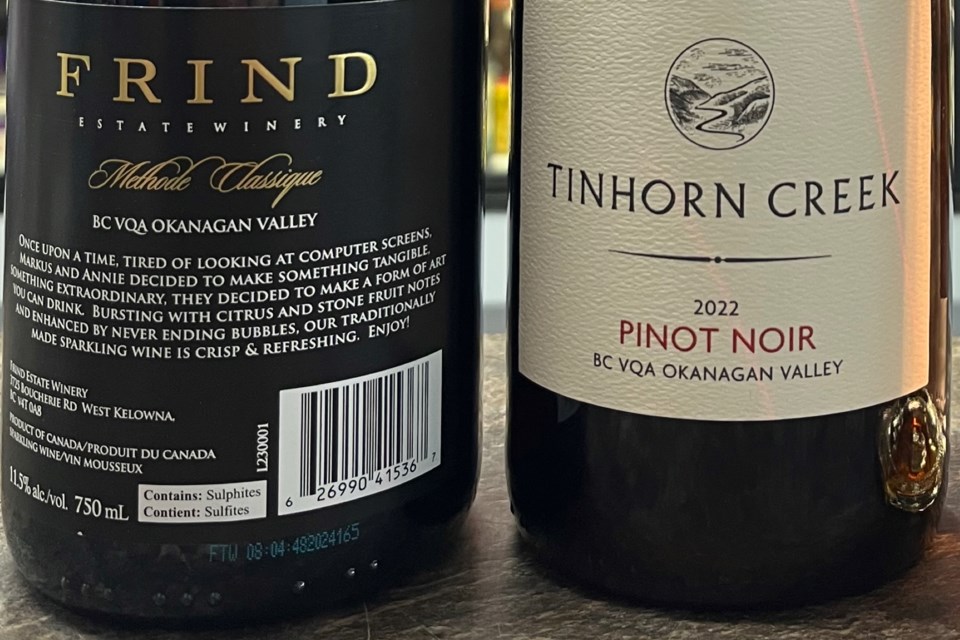SUNDRE – Although American brands aren’t mandated to be pulled from Alberta shelves in response to punitive tariffs the U.S. government has held off enacting for 30 days, one Sundre liquor store intends to put Canadian-owned labels under the spotlight.
“At Westview, we’re going to kind of put the big exclamation mark on Canadian-owned products,” said Owen Petersen, liquor supervisor at the Westview Co-op Liquor Store in Sundre, formerly known as the Cowboy Trail Liquor Store.
“We’re going to push hard on our Canadian made stuff and make that known to everyone,” said Petersen.
“One of the reasons – just on a personal level – that I’m excited to be with Co-op is they’ve always had a local-first mentality,” he said. “We’re owned locally. Our profits stay locally. We buy a ton of local products.”
Last week, U.S. President Donald Trump said that on Feb. 4 he was going to enact 25 per cent tariffs on Canadian exports to the country, except energy, which he said would be subject to a 10 per cent tariff. The tariffs were in response to Trump's concern with illegal border crossings and fentanyl crossing the border from Canada to the U.S.
Prime Minister Justin Trudeau announced Monday, after a call with Trump, that the tariffs would be delayed.
"Proposed tariffs will be paused for at least 30 days while we work together," Trudeau posted Feb. 3 on his verified social media accounts.
Trudeau said Canada is implementing a $1.3 billion border plan and appointing a fentanyl czar among other commitments.
I just had a good call with President Trump. Canada is implementing our $1.3 billion border plan — reinforcing the border with new choppers, technology and personnel, enhanced coordination with our American partners, and increased resources to stop the flow of fentanyl. Nearly…
— Justin Trudeau (@JustinTrudeau) February 3, 2025
Canada had previously announced its own tariffs on U.S. products in retaliation.
With Canada still facing punishing tariffs, there has arguably more than ever before been a country-wide reaction to support Canadian.
While many provinces – including Ontario, B.C., Manitoba and Québec – have taken the action of outright removing U.S. brands from shelves, that measure had not yet been implemented in Alberta by Monday.
“It’s easy for Ontario to do it, because they’re 100 per cent run by the province; it’s a Crown corporation over there,” Petersen said during an interview.
“Alberta has got a very different model. We’re all independent liquor stores,” he said.
But there nevertheless seems to be a sentiment toward favouring Canadian-owned and made options. And Petersen hopes to facilitate the choice of consumers who want to support brands that are made in Canada.
“Liquor is really complicated though, and I think people are going to get confused because classic brands like Molson Canadian are 100 per cent owned by American companies,” he told the Albertan.
“Now that being said, we’ve had this boom in the last few years of craft brewing, craft distilling in Alberta and in Western Canada that is incredible. And these are 100 per cent Canadian-owned companies that are buying Canadian grain and using Canadian water,” he said.
“So, it’s actually going to be really easy in the alcohol world to make that choice. And we’re going to make it really easy for folks and really promote and label those products,” he said.
“But I doubt we’ll be pulling any of our American products off the shelf, because if you want to go down that rabbit hole, you empty two-thirds of this liquor store out.”
Whether the strategy to place Canadian products under the spotlight might for example entail specialized labels fashioned after a maple leaf to more easily identify them, Petersen said regional supervisors planned to meet later this week to discuss such ideas.
“That’s a strategy I hope we do,” he said.
In the meantime, he offered a tip for consumers to keep in mind as they check the fine print on labels.
“In the wine world, Canadian wine comes with a classification of VQA,” he said, referring to the Vintners Quality Alliance.
“When you see those three letters on a bottle of Canadian wine, it’s guaranteed to be Canadian owned and Canadian made,” he said.
“Now you go to a lot of quote, unquote Canadian brands – like Jackson-Triggs, Sawmill Creek, all these big, major brands – (and) when you read the fine print, they use international grape juice, and the vast majority of that comes from California,” he elaborated.
“So, if people really want to buy Canadian wines, it’s super easy. They just have to look for those three letters – VQA – and they can 100 per cent support Canadian wine.”



